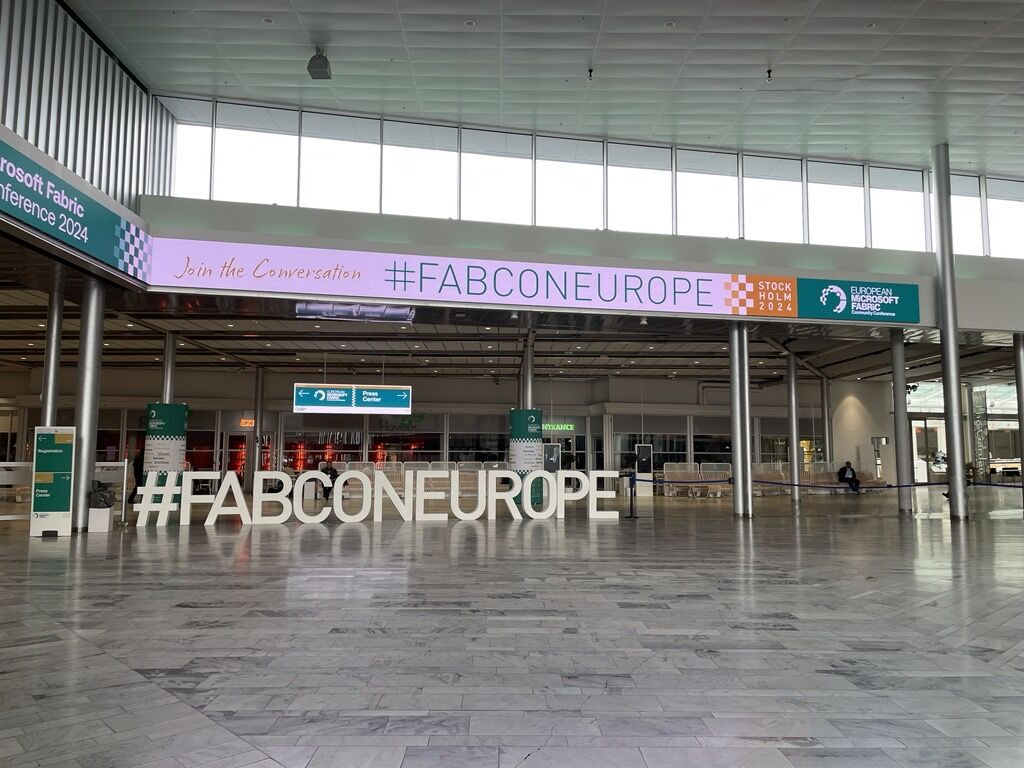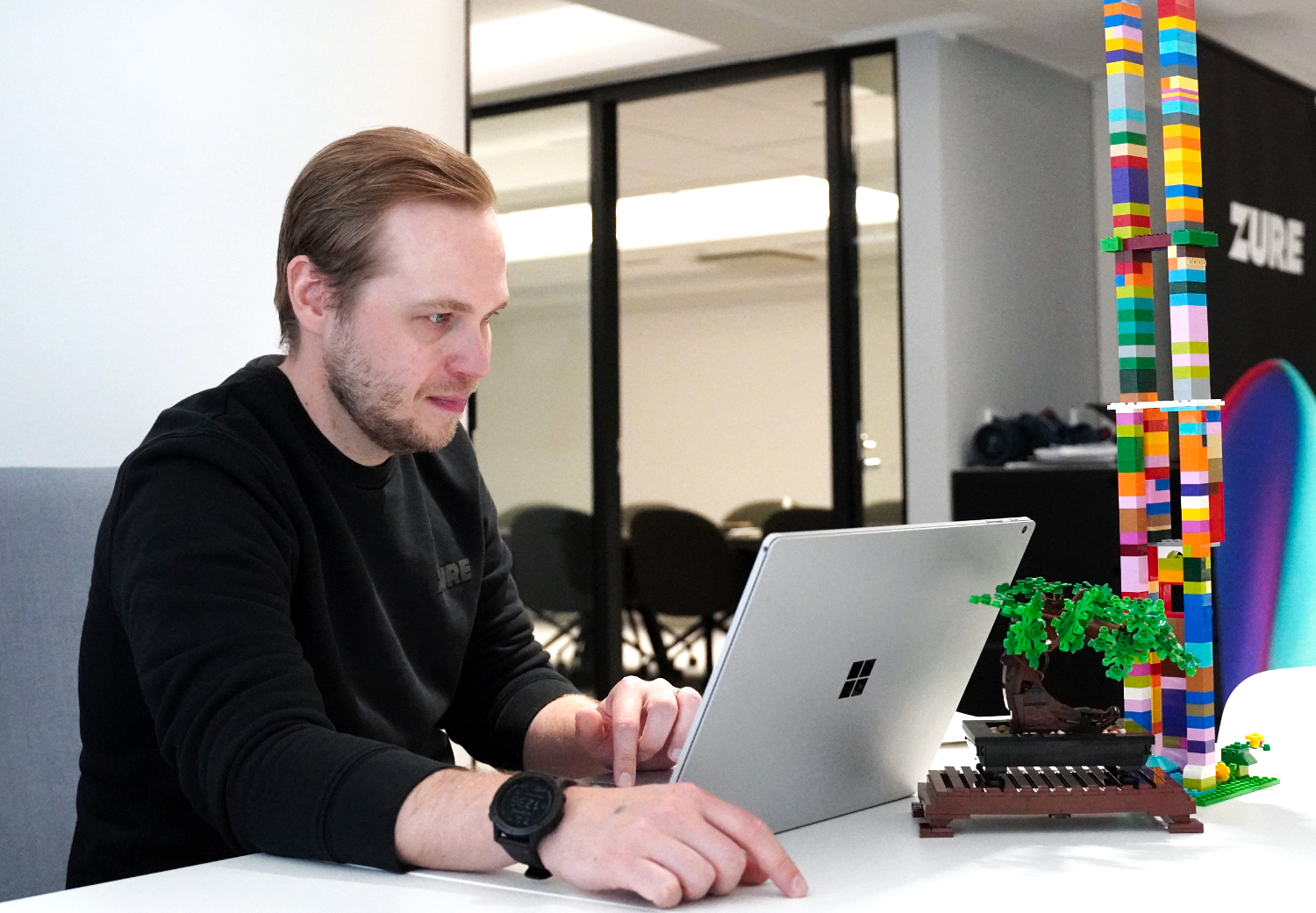FabCon is back, and it’s bigger than ever! The Microsoft Fabric community is gathering for the second time at the MGM Grand in Las Vegas this week. Over three days, thousands of participants will have the opportunity to attend more than 200 sessions, ensuring there’s something for everyone interested in Microsoft Fabric and data overall.
FabCon is set to return to Europe this fall, with the European Microsoft Fabric Community Conference scheduled for September 15-18, 2025, at the Austria Center Vienna in Vienna, Austria. Zure is sending a delegate to that conference, following a great experience at the first-ever Europe FabCon in Stockholm last year.

It appears the event calendar is now shaping up with exciting announcements planned for each season. FabCon North America typically takes place in March, Microsoft Build in spring around May, FabCon Europe in early fall in September, and Microsoft Ignite rounding out the year in November. Make sure to keep an eye on these events, as they’re sure to bring significant announcements and insights!
So, what exciting news did Vegas bring about Microsoft Fabric? Let’s take a look!
OneLake security
Currently, managing access rights between data items such as lakehouses and warehouses can quickly become a complex web when access must be defined individually for each item. Achieving a single source of truth requires consistent data access management at every step. A unified solution, known as OneLake Security, aims to simplify this process. The feature, currently in private preview, promises streamlined access management, and initial demonstrations have been promising. Transitioning from existing solutions will hopefully be straightforward! 🙂
Developer experience enhancements
One of the most significant challenges developers face with MS Fabric has been managing CI/CD processes. Until recently, existing tools have been insufficient for complex environments, necessitating custom workflows. The start of 2025 has seen substantial improvements, with more APIs becoming available and tools like the Fabric-CICD library emerging to simplify these tasks. Microsoft has now introduced two new capabilities to further enhance automation in Fabric environments:
Fabric Command Line Interface (CLI) ⚡
You know the feeling when you are scrolling between workspaces in the portal feeling lost? At least this has been a struggle for me. Entering Fabric CLI, terminal tool that allows users code-first approach to explore and manage different items in workspace or tenant level. I am not personally never been a hardcore terminal user, but I must say that Fab CLI is in my bag of tools from now on. Especially managing shortcuts and access management with scripts are extremely handy! Check it out here.
Variable libraries for workspaces 🔥
Another highly anticipated announcement is the introduction of variable libraries. Previously, managing connections between different workspaces is a struggle and demanded either manual work or custom solutions.Now, you can define environment-specific variables within version control, greatly simplifying data pipeline management and improving flexibility. This is long awaited and a MUST feature which has been missing. Great that it is finally out and able to use for example in data pipeline connections.
Migration Assistant for Fabric Data Warehouse – Shortcut to migration
Last year in Europe FabCon there was a sneak peak of Migration Assistant and now it is being released for public preview. Organizations have existing warehouse and database solutions, but in migration projects moving these can be quite cumbersome time-to-time. The Migration Assistant tries to simplify this issue giving built-in tool to bring database objects from existing SQL databases into Fabric. Right now the assistant can use dacpac files as a source to read all schemas, tables stored procedures and other objects, transform them on-the-fly with Copilot help and recreated it into Microsoft Fabric warehouse item. In addition creating the structure of the existing database, the data is being migrated as well. Although currently supporting only file-based migrations, live connection support to Synapse dedicated pools is coming soon, eliminating manual steps out of the equitation.
Fabric Copilot for all SKUs
Previously, Copilot and AI capabilities were limited to higher-capacity SKUs, but Microsoft has announced these features are now accessible to all SKUs. This democratization is great news, especially for smaller organizations unable to invest immediately in larger capacities. Keep in mind that extensive use could quickly hit usage limits, so manage wisely! 😅
Goodbye AI Skills – welcome Data Agent
What would a Microsoft conference be without rebranding! Microsoft is bringing Azure AI Foundry even closer to Microsoft Fabric by enabling to connect to custom data agents that are hosted in Fabric. Data agents in Fabric, formerly known as AI skills, retrieves knowledge across organization’s OneLake items to provide insights for end users with a conversational way. By managing these data agents in Azure AI Foundry, you are not only restricted to use unstructured data from Sharepoint or files but leverage also structured and semantic data straight from OneLake. Combining unstructured and structured data with AI agents are one step closer and paints out quite interesting future to leverage these two worlds together.
Mirroring level up!
We’ve been actively using Fabric’s Mirroring functionality, particularly Open Mirroring, and Microsoft has introduced some notable improvements for the feature in general. One standout feature addresses a common limitation: databases behind firewalls were previously challenging to mirror. This barrier is now removed, allowing mirroring via gateways for secure sources. Currently supporting Azure SQL Database only, but support for Azure SQL Managed Instance and Snowflake are expected soon.
Check out all of the announcements in the March feature blog post. There’s certainly plenty to digest!
Share this post:

Samu Niemelä
Data & AI Domain LeadSamu stumbled upon the data world ten years ago and hasn´t looked back since. Since then, he has done everything between data modeling and report designing. Currently, he works as a data architect designing data-related solutions on top of Azure, making data as valuable as possible for customers.
+358 503389332
samu.niemela@zure.com



